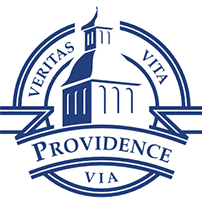It has been said that, “nothing is ever truly new,” which is partially accurate. After all, the advances in technology that people have come to take for granted over the past few decades are literally unmatched in the entire history of the world. Yet – as long as people have had eyes to see, one key aspect of communication is the use of visual media. In this way, it is the case that things have changed dramatically over the years in terms of how messages are portrayed and delivered. What remains the same, however, is that there is always a deeper story behind what can be seen.
This is one realm of media production, and Providence’s Centre for On-Demand Education is launching a new program that seeks to provide training in the latest skills that are needed to create meaningful content and to thrive in an ever-expanding digital environment. Led by Program Director Murray Stiller and colleagues like Student Proctor Nancy Wing, CODE will be offering a Certificate, Diploma, and Undergraduate Degree in Media Production Arts. But what is media production, and why does it matter? Let’s find out from the experts.

What is the scope of the term “media” and how does it relate to production?
Nancy Wing: “Media” will be defined differently by everyone. Some relate it to the mainstream news wars between battling networks and companies while others will minimize it simply to what can fit on a social platform. But media covers all forms of communication: written, visually static, audio-visual, audio, art, etc. Content creation, to me, is media production without the heart. It’s something to test algorithms and advance standings. Media production doesn’t just involve technical skill but an artistic vision. It sends a message that is, hopefully, meaningful. AI can create content…feeling humans create media.
Brand strategist Chris Do once said that, “All companies are media companies.” How do you understand this comment? Do you agree or disagree?
Murray Stiller: I sort of agree. Everyone has a message. In order to connect with your customers or tell your story, you need to know how to deliver the message with modern media (if you aren’t standing on the street corner yelling to passers-by). However, just because you can and are a “media company,” it does not mean that you do it well.
What is the purpose of media?
MS: I talk about the 4 E’s of media: Entertainment (self-explanatory), Education (teaching someone how to do something), Edification (celebrating beauty in all its forms), and Evangelism (convincing someone of your point of view, which includes news editorials). It is all “communication” embedded with “meaning.” The most effective way to communicate meaning through media is to tell it as a “story.”
NW: Yes – I’m personally all about the storytelling. Helping people to see themselves, to feel connected and see others; to build empathy.
Is there anything in particular that’s different or distinctive media production-wise in a religious or spiritual context?
NW: This is an interesting question. I think there is a misconception that religious identifying people SHOULD view or make media that adheres to specific boundaries or theologies. Think about the number of times you’ve heard people say their children can’t watch Harry Potter or that horror movies “invite the devil in.” On the other hand, the author of The Shack helped so many people to understand the Trinity and find ways to cope with grief, and yet I’ve been told by religious leaders it should be banned because it doesn’t align with their interpretation of scripture. In my way of thinking, media is a mechanism by which we can better understand this incredibly complex life if we allow ourselves to be open. Horror movies are simply depictions of the war of good and evil and are truly less terrifying than some sermons I’ve sat through. If we are to seek the truth of our creator, media production is a mechanism by which we can do that creatively.
MS: Exactly – if you believe that all truth is God’s truth, then all media is spiritual.
How is CODE’s Media Production Arts program unique?
MS: There is nothing like CODE’S Media Production Arts program in the world that I can find. The way the Media Production Arts program came about at Providence was through a unique set of circumstances and relationships. Most schools don’t think they can teach media online or on-demand. Our pandemic experience demonstrated that we could. While most schools teach based on traditional models that focus on the recall of information, the CODE program emphasizes what students can do. If we teach effectively, not only will students absorb the information, but will be able to demonstrate it through the media they create.
And what exactly can students do with Media Production Arts Certificate, Diploma, or Degree?
MS: The Certificate gets students started on their career, learning how to make media and the basics of film-making. The Diploma helps students focus their skills and knowledge, applying what they learned in the Certificate to expand their creativity and create content for clients. The Degree is a professional qualification that encourages students to find their particular voice as media artists, producers, storytellers, and business people while working with non-profit organizations though classes to create media for their needs.

Interested in amplifying your impact as a media artist? Get affordable, context-specific, mentored training with CODE’s Media Production Arts program. Find out more and apply today at Prov.ca/media.


